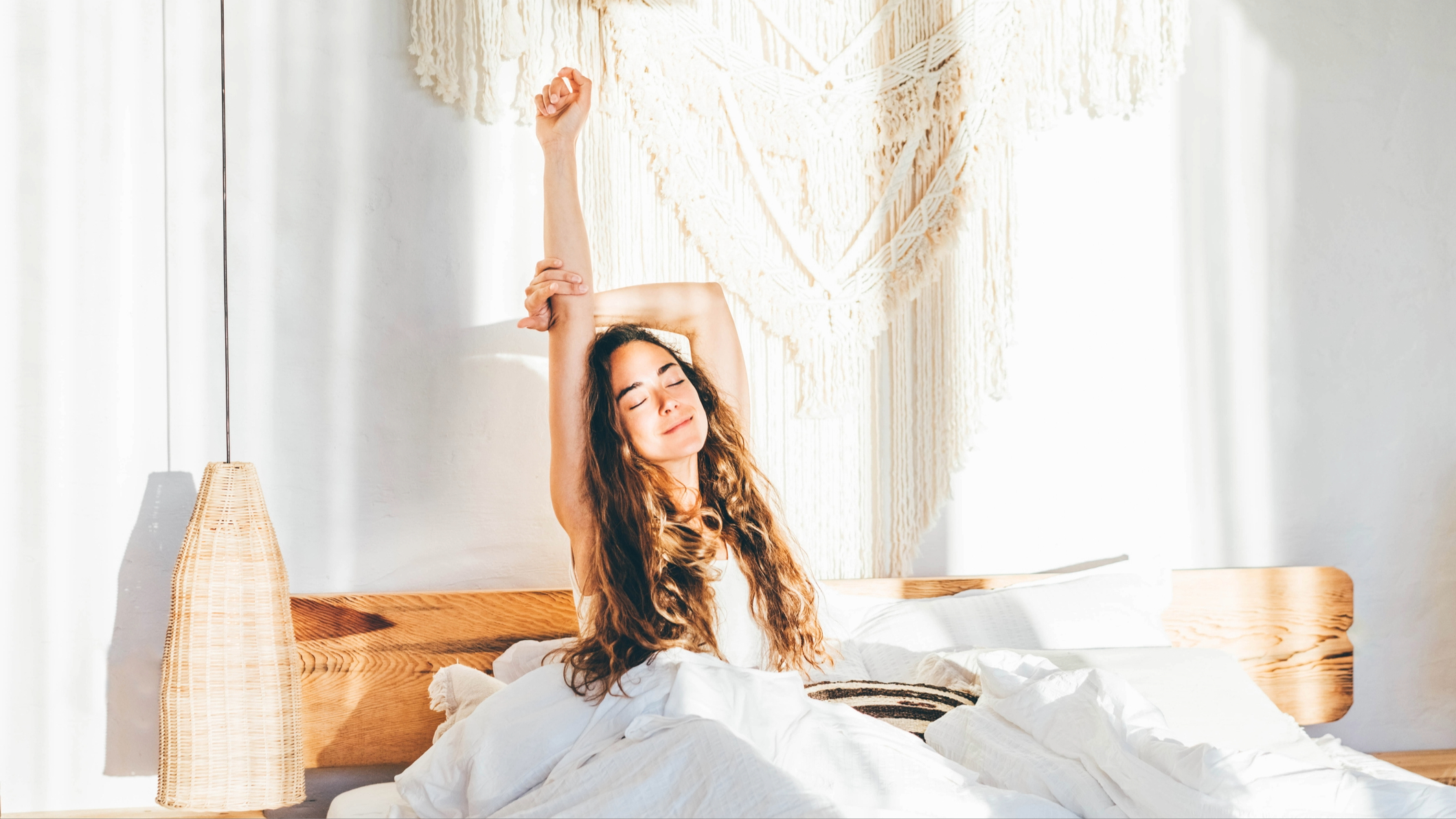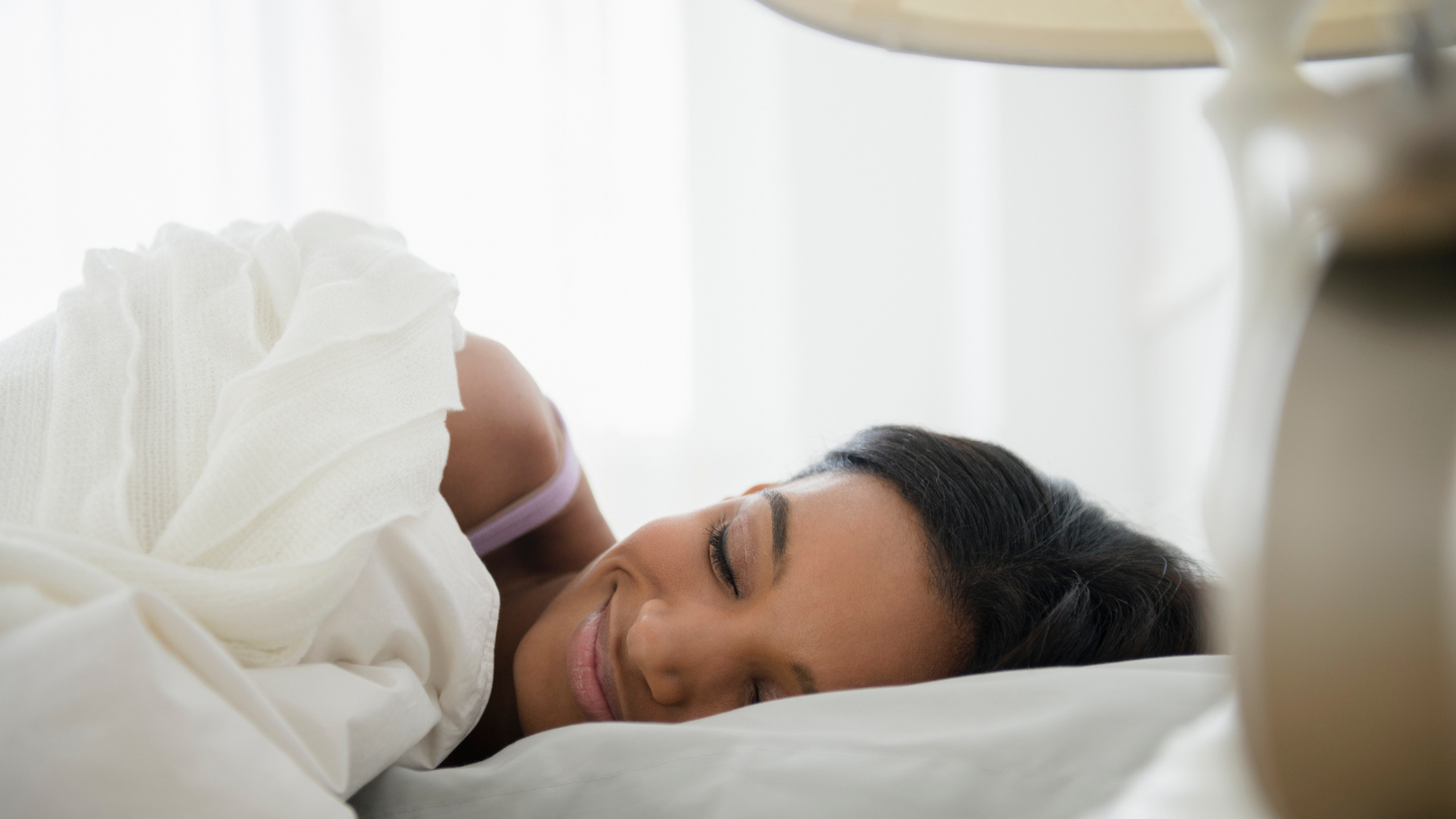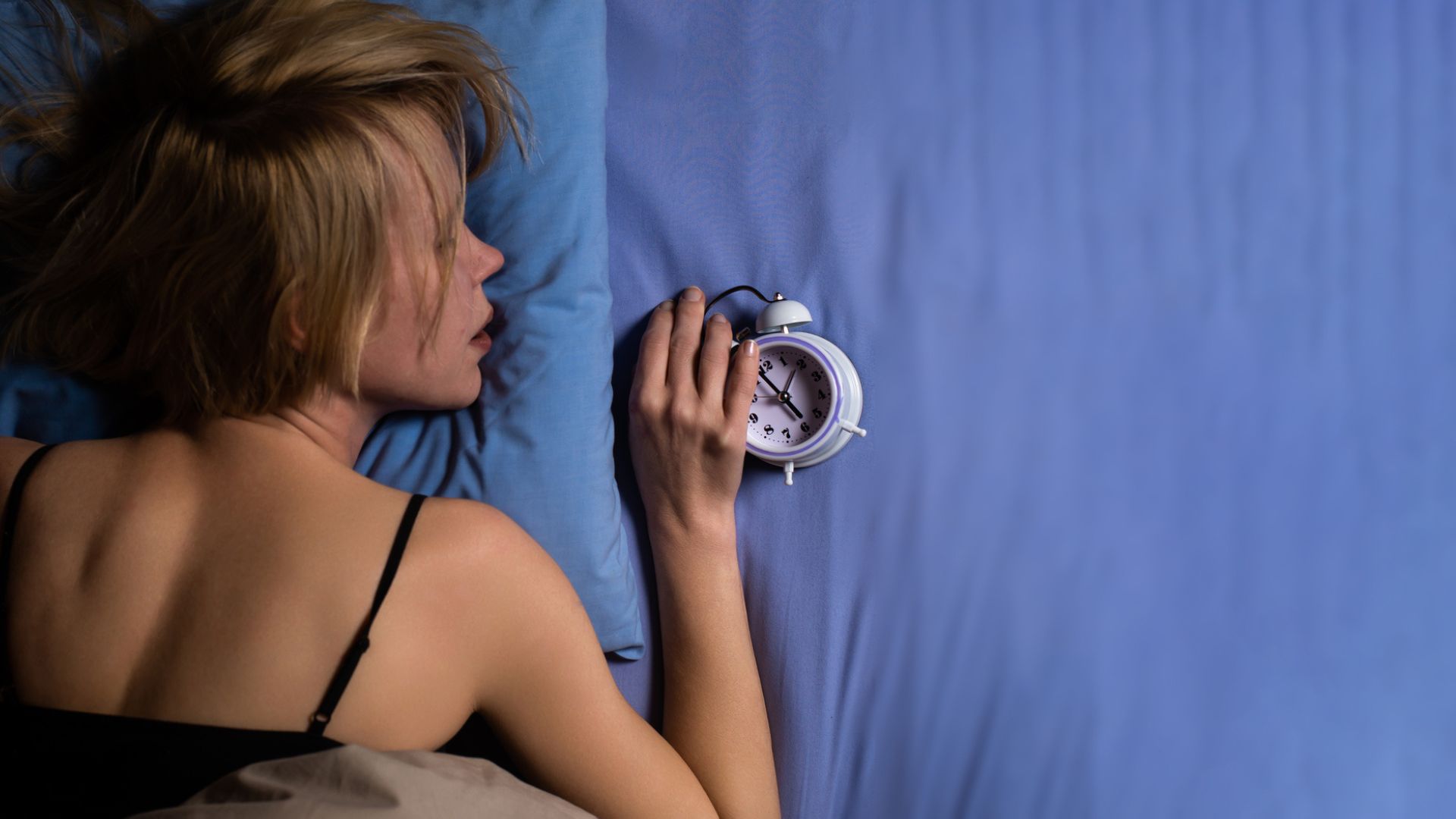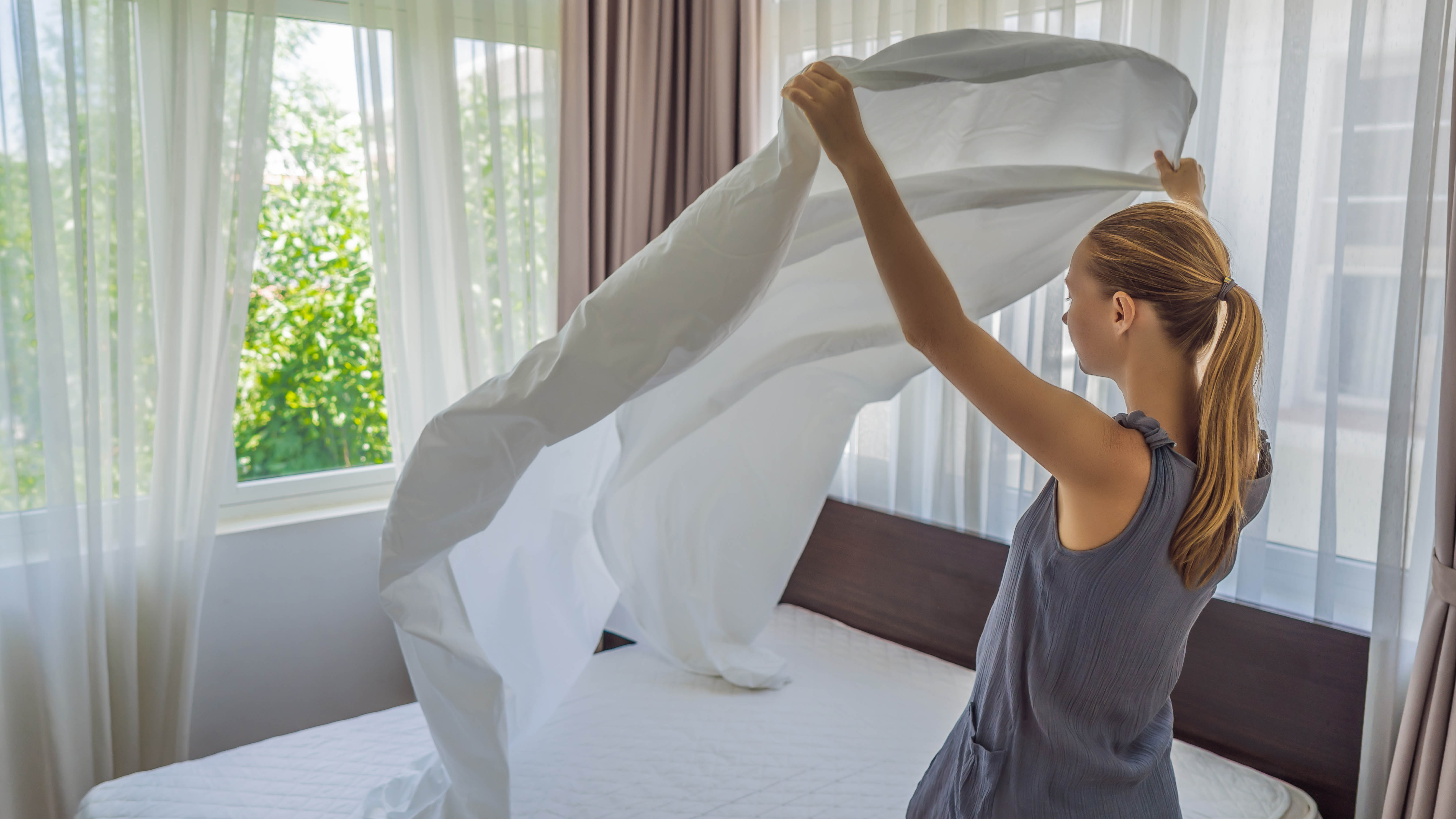Have you been sleeping better since the season change? Here's why
With spring comes more sun and more vitamin D — and that's good news for your sleep

Spring has sprung, bringing with it longer, warmer days, and more sunshine. But you may also have noticed a change to your night-times. In particular, that you're sleeping better.
And it's no surprise. You're likely noticing the effects of an increase in your vitamin D levels thanks to the arrival of spring.
Vitamin D is produced when we absorb sunlight through our skin (mainly in spring and summer, naturally), and as well as being important for our muscles and bones, it plays a role in regulating our sleep.
When we don't get enough vitamin D, it can lead to a deficiency, which is linked to sleep disorders, like insomnia.
So here, we'll look at how vitamin D helps our slumber, the impacts of vitamin D deficiency on sleep and why you might be sleeping better in warmer months, as well as ways to maximise your sleep quality as the temperatures (thankfully) rise.
How Vitamin D impacts sleep
According to research, vitamin D receptors in the brain play a role in sleep regulation, while the vitamin itself is also involved in the production of melatonin, the 'sleepy' hormone that is released at night to help us fall asleep.
As such, experts have concluded it's involved in helping to control our sleep-wake cycles.
Get instant access to breaking news, the hottest reviews, great deals and helpful tips.
Since vitamin D is significant for sleep, it makes sense that there is plenty of evidence a deficiency in it negatively impacts our slumber.
A 2018 meta-analysis of studies into the relationship between the vitamin and sleep disorders, "including poor sleep quality, short sleep duration, and sleepiness," concluded that, "vitamin D deficiency is associated with a higher risk of sleep disorders in the population."

According to research published by the UK government in 2022, one in six adults and 20% of children have levels of vitamin D that are lower than recommended.
It also found that Black and South Asian communities, people who are unable to leave the house and the elderly are more likely to experience lower vitamin D levels. In the UK in particular, people generally get their vitamin D through exposure to sunlight in spring and summer.
The recent transition from winter to spring heralds higher levels of this vitamin for most of us, which may be why, if you have struggled with poor sleep during the colder months, you may be seeing an improvement as we enter spring.
Other reasons why you sleep better in spring
You're getting more daylight
Natural light plays a critical role in keeping our circadian rhythms regulated, and the fact that spring sees longer days (thanks to the clocks going forward) means there's more chance to get yourself a dose of daylight.
When we're exposed to light in the morning in particular, it signals that its time for the production of melatonin to be supressed and for us to be awake and alert, as well as having a positive impact on melatonin production later on as it gets darker again in the evening.
Dr Nerina Ramlakhan, a Neurophysiologist and sleep expert at Oak Tree Mobility previously explained that getting 15-30 minutes of sunlight earlier in the day, "will optimise your sleep and wakefulness periods and helps you to produce more melatonin at night."

You're more active
If you're feeling a renewed sense of enthusiasm toward hitting the gym right now, you're not alone. UK research from 2023 showed that during spring and summer 60% of the nation feel more motivated to be active.
In fact, a review of studies into the relationship between physical activity over the seasons found that across the globe, physical activity "increases significantly in the summer-spring months compared to winter."
And that's great news for your sleep. “Exercise is a fantastic way to support better sleep," Dr Randall Turner, certified in Psychiatry and Addiction Medicine and Medical Director at Able to Change Recovery previously told us.
“Try to exercise earlier in the day. Morning workouts energize you and help regulate your circadian rhythm by signaling to your body when it’s time to be awake and when it's time to sleep."

Your mood has improved
For those who experience seasonal affective disorder (SAD), a type of depression that occurs in the colder, darker seasons, the arrival of spring will generally see their symptoms (which can include anxiety, low mood, changes in sleep, fatigue, irritability and hopelessness) begin to improve as the days get longer.

While serotonin levels can dip and melatonin levels increase when there is less daylight (which can lead to low mood and feeling groggy during the day and having problems sleeping at night), in the spring and summer, there's more light and sun, which results in a boost of serotonin production.
That's good news for your mood, and, because serotonin is a precursor for melatonin, it will help regulate your sleep-wake cycle too, meaning you're producing melatonin at the right time for a good night's rest.
How to get consistently good sleep
It's great if spring and summer see your sleep improve, but it is possible to make adjustments to help you sleep better not just right now, but all year round.
Keep your sleep schedule consistent
One of the simplest hacks for better sleep involves keeping a regular schedule for going to bed and waking up in the morning.

That's because being consistent with these timings helps to regulate your internal body clock, known as your circadian rhythm.
Among other functions, this body clock regulates the suppression and release of hormones such as cortisol (which makes us feel awake and alert) and melatonin (which helps us fall asleep).
It makes sense then, that a regular sleep schedule (say, going to bed at 10.30pm each night, and setting your alarm for 7am each morning) will support healthy circadian rhythms and the release of these hormones exactly when you need them.
Pay attention to sleep hygiene (especially if you have hay fever)
Practicing good sleep hygiene involves everything from healthy habits you adopt in the day and evening ahead of rest (like eating well, exercising, avoiding caffeine at night and limiting alcohol consumption) to creating a sleeping environment conducive to rest (having the best mattress and best pillow for you, reducing light and sound pollution, having a tidy bedroom and keeping your room at the right temperature).
Right now, you may be noticing an increase in hay fever symptoms (an allergy to pollen that is worse in the March-September pollen season in the UK), and there are ways good sleep hygiene in this area can help.

They include showering at night to get rid of any pollen you've picked up during the day, vacuuming your bed and washing bedding regularly to avoid any accumulation of pollen and other allergens.
It's also a good idea to keep your windows closed in the early evening, the prime time for high pollen count. Find out more tips in our guide on how to sleep with hay fever.
Have a calming nighttime routine
Routines have a soothing familiarity at any time of day, but adopting a calming one at nighttime can be particularly effective in helping you sleep well.
A good nighttime routine will help your brain and body prepare for sleep, and involves incorporating a regular series of relaxing pastimes into the period of time before you switch your bedroom light off.
That may be ditching screens a few hours before bed, drinking herbal tea, taking a hot shower, reading or listening to soothing music.
Jenny Haward is a U.K. based freelance journalist and editor with more than 15 years of experience in digital and print media. Her work has appeared in PEOPLE, Newsweek, Huffpost, Stylist, ELLE, The Sydney Morning Herald and more. Jenny specializes in health, wellness and lifestyle, taking a particular interest in sleep.
You must confirm your public display name before commenting
Please logout and then login again, you will then be prompted to enter your display name.
